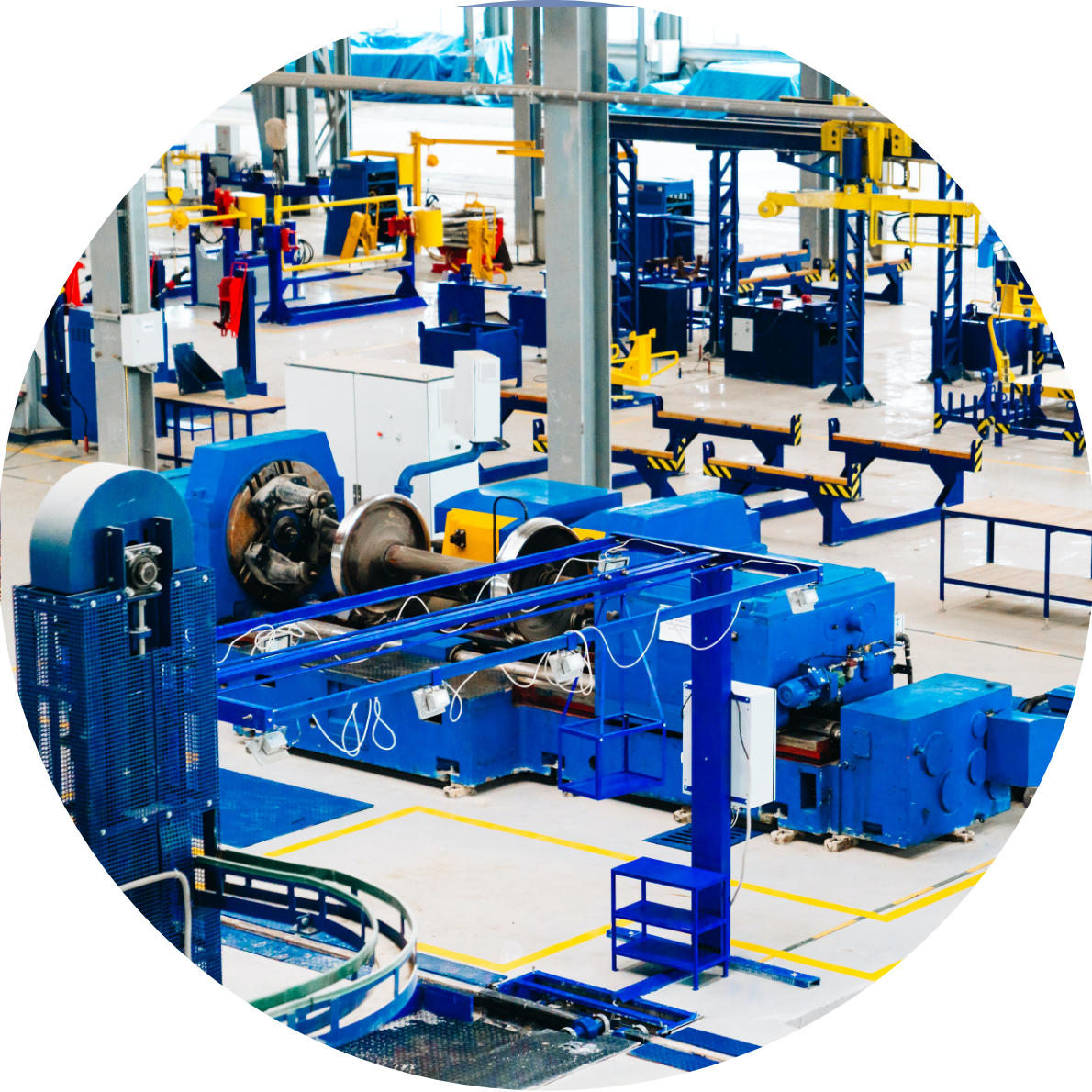It’s Time to Exit. Are You Ready?
It’s Time to Exit. Are You Ready? Thinking about whether or not you are ready to exit

Looking to sell your manufacturing business in Austin, Texas? IBEX Middle Market Business Brokers has 46+ years of experience and 400+ closed deals. We help business owners secure more for their life’s work

Years of Experience
Selling Businesses

Deals Closed

in Business Sales
Brokered by IBEX

Active Buyers Looking For Their Next Investment
Trust IBEX’s unmatched experience and commitment to transform the unique task of selling your business into a rewarding and seamless experience.
At IBEX, we’re more than just business brokers – we’re your partners for success.
We aren’t just advisors at IBEX; we’re your accomplished navigators through the process of selling your business. With a laser-focused approach to results, our seasoned team navigates the complexities of each sale, from initial listing to the successful close. With over a century of combined corporate leadership under our belt, our team boasts a track record of hundreds of profitable company sales.
With IBEX by your side you’re embracing a team deeply committed to your vision, ensuring a smooth process leading to unparalleled results.
Rooted in tradition yet forward-thinking, IBEX employs a blend of established and novel marketing techniques to position your business for success. Our meticulously crafted campaigns range from leveraging dynamic online selling platforms to trusted traditional advertising channels.
Leveraging direct mail, email campaigns, social media and telemarketing, we draw in buyers who genuinely appreciate the value of your business.
With a track record of 400+ successful business sales across Texas, we proudly stand as one of the U.S.’s premier M&A advisory groups. Our history is rich with accomplishments, diverse expertise, a relentless drive to ensure success, and a profitable sale – for every client.
Partnering with IBEX means harnessing the power of four decades of knowledge, insight, and innovation when selling your Austin, TX manufacturing business.
Discover the power of IBEX’s vast and unmatched buyer network. Leveraging our accumulated buyer databases, personal connections, and our constant outreach to enthusiastic buyers, we assure your business receives exposure to the correct audience.
Our extensive reach and targeted approach mean that you’re more likely to find a buyer whose vision aligns with your business’s potential, maximizing your selling prospects.
At IBEX, our track record isn’t merely about numbers—it’s a testament to our relentless drive for remarkable results.
Across hundreds of industries, IBEX has expertly closed deals, demonstrating our prowess in overcoming obstacles and capitalizing on opportunities. Each success in our portfolio reaffirms our expertise, trustworthiness, and the cherished partnerships we’ve fostered with our happy clients. Let us help you sell your Austin manufacturing business!
With a track record of 500+ successful business sales across Texas, we proudly stand as one of the U.S.’s premier M&A advisory groups. Our history is rich with accomplishments, diverse expertise, a relentless drive to ensure success, and a profitable sale – for every client.
Partnering with IBEX means harnessing the power of four decades of knowledge, insight, and innovation when selling your Austin, TX manufacturing business.
We aren’t just advisors at IBEX; we’re your accomplished navigators through the process of selling your business. With our laser-focused approach to results, our seasoned team navigates the complexities of each sale, from initial listing to the successful close. With over a century of combined corporate leadership under our belt, our team boasts a track record of hundreds of profitable company sales.
With IBEX by your side you’re embracing a team deeply committed to your vision, ensuring a smooth process leading to unparalleled results
Discover the power of IBEX’s vast and unmatched buyer network. Leveraging our accumulated buyer databases, personal connections, and our constant outreach to enthusiastic buyers, we assure your business receives exposure to the correct audience.
Our extensive reach and targeted approach mean that you’re more likely to find a buyer whose vision aligns with your business’s potential, maximizing your selling prospects.
Rooted in tradition yet forward-thinking, IBEX employs a blend of established and novel marketing techniques to position your business for success. Our meticulously crafted campaigns range from leveraging dynamic online selling platforms to trusted traditional advertising channels.
Leveraging direct mail, email campaigns, social media and telemarketing, we draw in buyers who genuinely appreciate the value of your business.
At IBEX, our track record isn’t merely about numbers—it’s a testament to our relentless drive for remarkable results.
Across hundreds of industries, IBEX has expertly closed deals, demonstrating our prowess in overcoming obstacles and capitalizing on opportunities. Each success in our portfolio reaffirms our expertise, trustworthiness, and the cherished partnerships we’ve fostered with our happy clients. Let us help you sell your Austin manufacturing business!
We offer a diverse catalog of business opportunities across various industries. With a keen understanding of the Texas market and beyond, we assist buyers in finding businesses that match their aspirations.
Whether you’re an experienced entrepreneur or exploring new ventures, IBEX will connect you with the right opportunities.
We specialize in facilitating seamless business sales that maximize value and ensure a smooth transition. Our proven approach encompasses assessment, marketing, buyer prospecting, negotiations and more.
With IBEX as your partner, we’ll help you navigate the complexities of selling your business with confidence and achieve the best possible outcome.
"*" indicates required fields
Join the ranks of satisfied Austin business owners we’ve helped get the most for their business. If you’re looking for a fair and honest look at what your business is worth in today’s market, IBEX can walk you through the numbers. Get in touch today to learn more about how we can help you with the sale of your Austin, TX manufacturing business.
Business-friendly Texas is a major manufacturing hub of the US manufacturing sector, responsible for roughly 10% of national production and a source of goods and materials for numerous Fortune 500 companies.
In Austin specifically, semiconductor manufacturing has thrived in the past few years, growing while other parts of the Austin economy were struggling to maintain the explosive pace of growth the city has enjoyed for years.
Over the past few years, Austin’s tech sector has cooled, signaled by thousands of layoffs. This cooling has affected the adjacent and related manufacturing operations. However, buoyed by strength in semiconductor manufacturing, outlook for the local sector remains positive.
Hourly wages in Austin have continued to rise, outpacing the national average, which makes the local cost of labor high compared to other manufacturing centers. However, favorable business tax structures continue to incentivize companies like Tesla to keep and expand their manufacturing operations within range of the Texas Capital.

It’s Time to Exit. Are You Ready? Thinking about whether or not you are ready to exit
Top Four Reasons Why Buying an Existing Business May Be Smarter Than Starting One from Scratch Many
Top 3 Meeting Tips for Buyers and Sellers in Business Transactions When buying or selling a business,
It is impossible to predict exactly how long it will take to sell your Austin manufacturing business. A number of factors will contribute to the speed (or lack thereof) of the transaction, including market conditions, your preparedness, the attractiveness of your business, and the qualifications and motivation of the buyer.
As a rule of thumb, manufacturing businesses tend to take a little longer to sell, since there are often facilities and equipment to inspect, as well as regulatory compliance to validate. In general, it tends to take nine to fourteen months for the sale to close, from start to finish.
Of course, there’s no one-size-fits-all answer. In fact, size is a big factor — the bigger the business, the greater the value it tends to command. To understand why, you must first understand revenue multipliers.
Most manufacturing businesses sell based on the value of the assets and contracts conveyed, its future earnings potential, and/or a multiple of its EBITDA (Earnings Before Interest, Taxes, Depreciation, and Amortization). Business sale multiples tend to range from 1x-6x, with larger businesses tending to command higher multiples.
Other factors include the point in the market cycle and the available supply of qualified buyers, as well as the demand for manufacturing in your specific industry or niche.
A manufacturing business, like many businesses, starts its valuation process with a cash flow analysis, as its value largely depends on its ability to produce revenue and profit. The most relevant figure for most manufacturing businesses is EBITDA (Earnings Before Interest, Taxes, Depreciation, and Amortization).
Another factor in business valuation is an asset-based valuation. Most manufacturing businesses have equipment, inventory, materials on hand, and even real estate. The asset value of all of these tangibles will contribute to the value, as will intangibles like patents and other intellectual property.
Yet another factor in valuation is future earnings potential — the analysis of current factors to extrapolate into the future how earnings for your business will grow or retract, including industry growth and the scalability of your business model.
There is much to consider when selling your Austin-based manufacturing business. Factors include:
Consult the experienced business brokers at IBEX for a more complete list of considerations for the sale of your specific business.
There is no specific time of the year when it is best to sell a manufacturing business. Generally speaking, some signs that the time might be right to sell your business include:
If you are in a hurry to be done with your business and have it out of your hands, there are things you can do to set yourself up for a speedy transaction. Measures to consider include:
As you can imagine, there will be many documents to pull together as you prepare to sell your Austin-based manufacturing business. Some documentation to start pulling together will include:
How much you can sell your manufacturing business for depends on a great many factors. One of the best indicators of your correct valuation is Earnings Before Interest, Taxes, Depreciation, and Amortization (EBITDA). The higher the EBITDA, the more a manufacturing business will sell for.
Businesses usually sell for a multiple of a specific revenue metric (like EBITDA). This multiple can be anywhere from 1x to 6x. Online businesses tend to sell for a high multiple; restaurants and retail stores for a low multiple.
Manufacturing businesses usually fall somewhere in the middle — around 2x-4x. It depends on the industry, as well as other factors specific to your business — location, existing customer base, whether real estate, equipment, personal property, contracts, etc. will transfer with the sale, and so on.
As always, consult a broker or valuation expert to arrive at the best estimate of the value of your business.
Obviously, you want the highest possible value for your business when you bring it to market, but overpricing it can cause your business to sit on the market for weeks, months, or even years, looking more unattractive with every passing day. So what’s the right way to maximize the value of your manufacturing business at the time of sale? Consider:
When you close the transaction for your manufacturing businesses in Austin, TX, cash gets distributed as stipulated in the closing documents. Much of the proceeds will go to you as the seller, of course, or to other shareholders in proportion to their ownership interest if such shareholders exist.
Funds may be routed directly to any lenders or taxing authorities to settle outstanding debts and tax liabilities. Some funds will go to pay brokerage and service fees.
Usually, the buyer puts cash in an escrow account, just as with the sale of real estate, to be held by a neutral third party as security for the fulfillment of all terms of the deal.
If the business has liquid cash accounts that will transfer to the buyer with the sale, that cash may be included in escrow and distributed to the buyer, or the buyer may receive access to bank accounts held in the name of the business. In that case, money doesn’t change hands, only access to existing accounts.
The standard time to arrange financing is 30 to 90 days, but as usual, results will vary. Different approaches to financing for the sale of a manufacturing business can require very different time horizons to fund. As such, understanding the type of financing your buyer intends to pursue can and should make a big difference in which offer you select and how you prepare for the closing process.
Conventional lending sources, such as banks, tend to take longer to underwrite, process, and fund their loans. Online or asset-based loans tend to be quicker, and seller financing (of course) can be the quickest option of all.
Of course, the length of the financing period depends on the complexity of the business, the underwriting process of the lender, negotiation periods, and external factors like changes in regulation. Gathering together documents can be time-consuming, as can be the due diligence period for both the buyer and the lender.
There are many ways in which working with a business broker can be favorable to the sale of your manufacturing business. Some of the key reasons include:
Our fees usually take the form of a commission against the final sale price. This motivates us to get you the best deal possible in the shortest time possible, since that maximizes our revenue per hour and aligns our goals with your own goals.
The percentage commission depends on a number of factors, including the size of the business, industry, complexity of the transaction, and the scope of work or range of services we provide. For example, if we get very hands-on with the due diligence and take a lot of the busy work off your plate, our agreement will probably be for a higher commission. This helps set you up for a speedy sale without the up-front costs.
Generally speaking, our commission usually ranges from 2% to 8%. Broadly speaking, we only get paid in the event of a successful transaction, and the bigger the transaction we obtain for you, the greater the return we enjoy on our own investment of time and resources.
You may be understandably hesitant to broadcast private business details to the world — may even prefer to let it go unnoticed by the public that your business is for sale at all. Should that be the case, you have several recourses at your disposal to keep the details of the transaction or even the existence of the transaction private. Measures to consider include:
As always, the exact amount of taxes you will pay upon the sale of your business depends on the industry, your tax bracket, and the specifics of the business. As a rule of thumb, you can usually expect the overall tax liability to fall into the range of 15-30%. Of course, that is a big range, and you should consult a tax professional to better understand what taxes you may face.
The sale of a business for a profit is almost always a taxable event, and those taxes will necessarily eat into the proceeds. Taxes business owners usually face upon cashing out include Federal capital gains taxes, possible state income taxes or franchise taxes, sales tax on any personal property or equipment conveyed with the sale, transfer taxes on any real estate, and possibly other taxes.
Join the ranks of satisfied Austin business owners we’ve helped get the most for their business. If you’re looking for a fair and honest look at what your business is worth in today’s market, IBEX can walk you through the numbers.
"*" indicates required fields